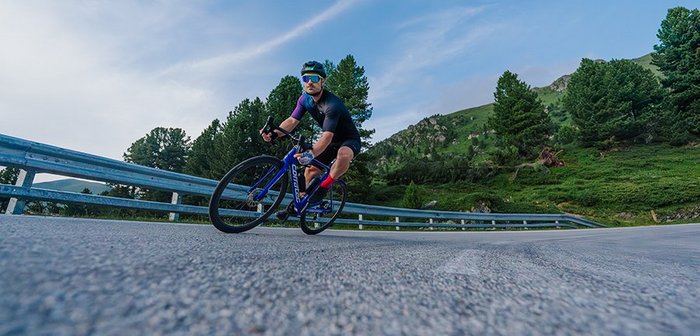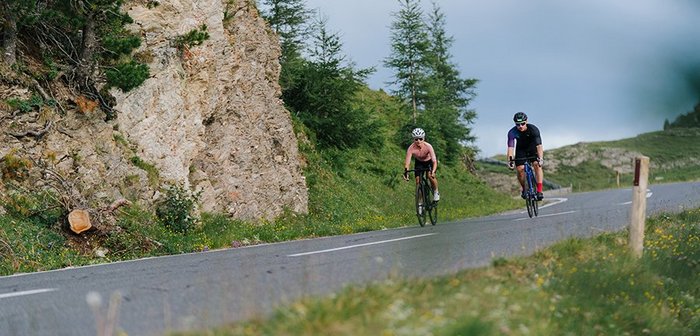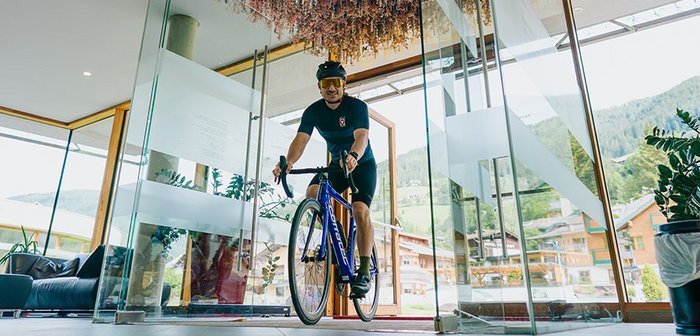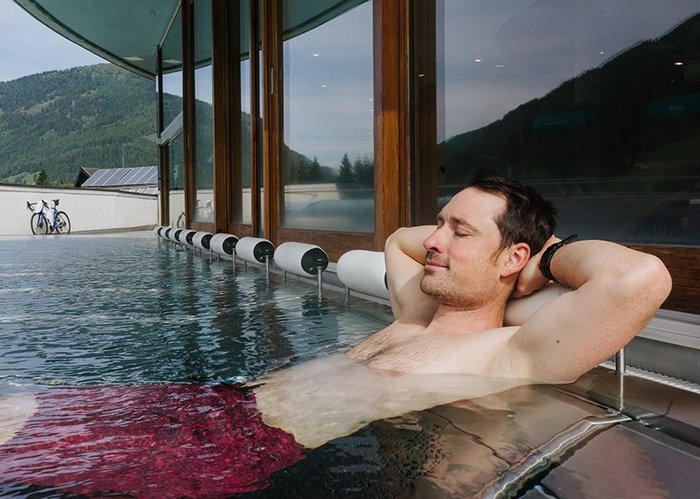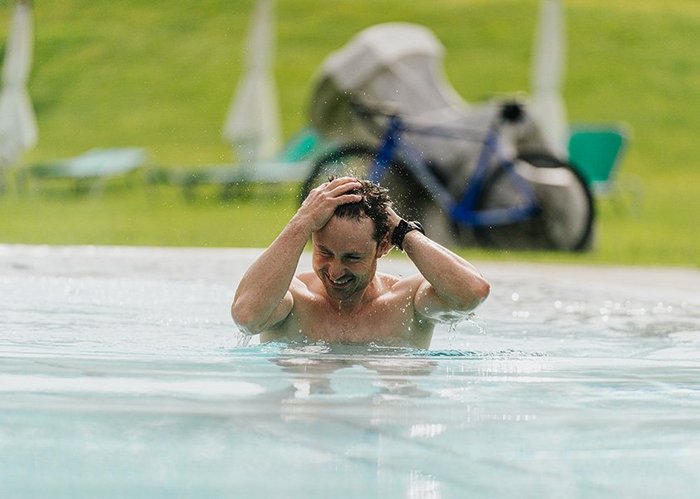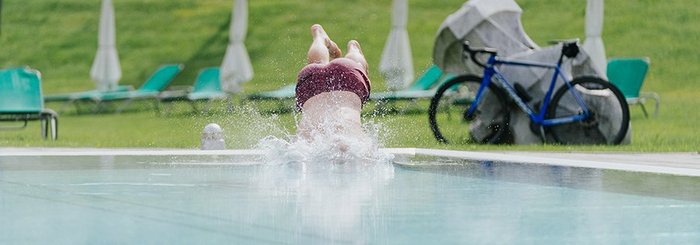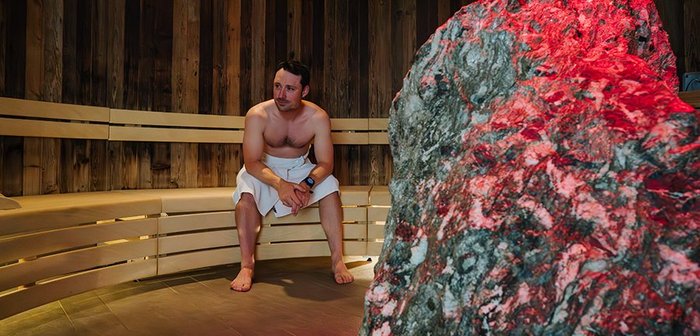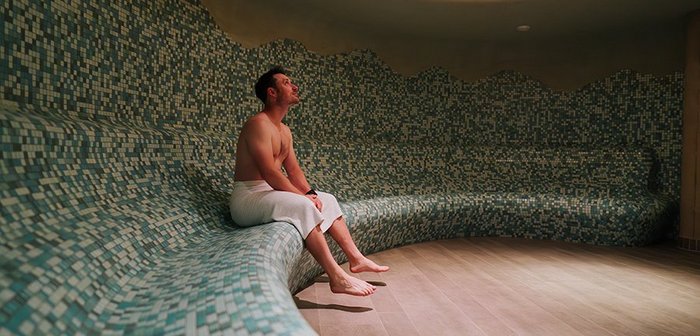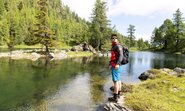Guest blog: Regenerating in the thermal bath – prepped for the next training session
"Recovery is the key to success."
If there’s anyone who knows how to get the most out of their training, it’s snowboarding pro, Alex Payer. In his guest blog article, he shares his personal tips for striking the right balance between endurance sport and regeneration. Find out how thermal water and saunas can promote recovery, and what common mistakes to avoid to stay fit.
The principles of “a lot goes a long way” and “more is always better” are the keys to success in competitive sport. Is this true or are there other factors to bear in mind?
I have to admit that these two training principles dominated my sporting life for years. I kept thinking to myself that I had to train harder, more and longer than my opponents in order to ultimately be the best. None of the well-intended advice from my trainers and coaches helped either, because it went in one ear and out the other, as they say. But (and this is the beauty of “growing up”) learning is part of the journey, and you soon realise that there’s a whole other side to sporting performance than just strength and endurance.
Regeneration starts in the mind.
If you decide to do sport and exercise intensively, you’ll get to the point where sore muscles and fatigue soon become the order of the day. This is also completely independent of the stress you’re under depending on your level of training. For one person, this might be five hours on a racing bike, for another, 45 minutes of gentle walking. But exercise and stress are always aimed at getting an adaptive reaction from your body and it doesn’t take long to get there. That’s why, at least from this point onwards, you should think about the best possible recovery so you can be back in top form as quickly as possible. But as the heading suggests, regeneration is first and foremost a question of attitude. You also have to take the time and be prepared to switch off a bit in your head.
Visiting the thermal bath to regenerate.
The fact that people have always used thermal water and hot springs for relaxation and enjoyment is nothing new. We have more than enough knowledge by now about the healing effect of thermal water and this is exactly what sport, regeneration and thermal water are all about. Firstly, time at the spa is the perfect way to switch off for a while and treat yourself to some much-needed time out. That applies to me as a professional athlete just as much as it does to any beginner. You can simply leave your phone behind in your washbag and focus on yourself. Another benefit is that the warm water is extremely beneficial for muscle recovery and improved blood circulation in the body.
It relieves the hydrostatic pressure acting on the body in the water, facilitates the transport capacity of the blood vessels and has a similar effect to lymphatic drainage by a masseur, allowing waste products from the muscles to be metabolised more quickly
Endurance sports and saunas.
In recent years, everyone has been talking about endurance sports again. Race cycling in particular is extremely popular and the Bad Kleinkirchheim region has the perfect conditions for it. I have to admit, I’m no stranger to this trend either and have turned more and more to endurance sports in the past with the specific aim of becoming more efficient and resilient over the duration of a competition season. But what effect does the ever-popular sauna session have on recovery in endurance sports? We can already answer this question with “a very positive effect” by considering a few small details.
The heat in the sauna causes the blood vessels to dilate (vasodilation) as the sauna session continues. Together with an increased heart rate, this causes a significantly increased blood flow, leading to better transportation of nutrients and waste products. It also improves the blood supply to the lung mucous membranes and regenerates them, which is extremely important in endurance sports. Another thing is that the muscles relax much better at high temperatures, preventing long-term muscle tension.
Sauna and sicknesses.
In my case, it’s particularly important to get through the flu season with as little sickness as possible, as obviously I need to be at my peak performance because an athlete in good health always performs better. That’s why I also use the sauna to keep sickness at bay because at room temperatures from around 80-90 degrees Celsius, you trick your body into thinking you have a fever so that it releases immune defence chemicals which help you eliminate any pathogens at an early stage.
Caution: NO-GOs.
Even active relaxation, however important it may be, naturally reaches its limits at some point. For this reason, it’s important not to forget the following:
- Never go to the thermal bath or sauna if you have an acute infection. Only a healthy body actively recovers better.
- Even if losing weight in the sauna is a welcome sight on the scales, you really need to keep your fluid loss under control. You quickly sweat out one litre per hour.
- After a visit to the sauna or spa, you often feel refreshed and much fitter again. But you should still allow one good night’s sleep before stepping back into your trainers and setting off again to achieve outstanding performance.
With this in mind, give your body the time it needs to regenerate.
All the best,
Alex
Instagram: alexanderpayer
Website: www.alex-payer.at

